Best Kidney Hospital in Hyderabad, India
- 35+ Years of Expertise in Treating Kidney Diseases
- Largest Number of Robotic Nephrectomies & Transplants in the Region
- Advanced Robotic, Laparoscopic, and Laser-Assisted Surgeries
- Expertise in Nephron-Sparing Surgery for Kidney Cancer
- Leaders in Comprehensive Adult & Paediatric Kidney Care
- State-of-the-Art Dialysis and Haemodiafiltration Unit
- Over 15 Transplants for National & International Patients Monthly
Department of Nephrology & Kidney Sciences
Kidneys process about 180 litres of blood and remove almost 2 litres of waste daily. Renal diseases and injuries may impair renal functionality. Over time, the absence of treatment for kidney diseases can lead to a gradual and insidious deterioration of renal function. Certain conditions, including diabetic nephropathy, hypertension, glomerular diseases, congenital kidney disorders, trauma, or poisoning, can inflict damage upon the nephrons, the filtering units of the kidneys, consequently diminishing renal functionality.
Nephrology is a specialised branch of medicine focused on the study, diagnosis, and treatment of a variety of kidney diseases and conditions. Nephrologists specialise in treating several structural, functional, and morphological diseases of the kidneys and their internal structures. The nephrology department at Yashoda Hospitals is dedicated to providing high-quality services with advanced facilities and personalised patient care. Our nephrologists offer a full spectrum of diagnostic, consultative, and treatment services for kidney disease patients, from the earliest detectable changes in kidney function to end-stage kidney disorders.
Specialised Care for Nephrological Diseases and Conditions
Diseases and Conditions affecting the renal system frequently manifest as chronic kidney failure, a condition observed in chronic renal diseases that leads to gradual, irreversible damage to the kidneys and a decline in renal function. In the early stages, the signs are often subtle. Therefore, early diagnosis and intervention for renal diseases are of paramount importance.
Acute kidney injury (AKI) is commonly seen in hospitalised patients, especially in critically ill patients. The institute provides critical care with leading practising nephrologists for mild, moderate, and severe acute kidney injury. AKI is associated with a rapid (within hours or days) decrease in renal excretion and accumulation of creatinine and toxic wastes (accelerated decline in kidney function). Our nephrologists focus on identifying the injury before it culminates in acute renal failure. Patients may require renal replacement therapy in both cases. It is important to stop the progression of acute renal failure to chronic kidney disease.
- Advanced Diagnostics
- Urine Tests and Cultures
- Latest Imaging Technology
- Dedicated Specialists for Renal Biopsies
Advanced Nephrological Treatments and Surgical Renal Interventions
Our most advanced kidney stone management with lasers, shock wave therapy, and robotic-assisted surgeries makes us the best kidney stone treatment centre in Hyderabad, India.
Yashoda Hospitals proudly introduces the latest-generation robotic surgical system, designed for highly precise and complex kidney surgeries. This advanced technology enables partial and radical robotic nephrectomies and treatments for complex uro-oncological conditions. It allows for the surgical removal of small kidney tumours while preserving healthy kidney tissue, safeguarding the vital nephron. Complex cases of resistant hypertension (uncontrolled hypertension) are swiftly and effectively handled under the superior expertise and guidance of our senior nephrologists.
- Latest Generation Robotic Surgical System
- Robotic Nephrectomy & Uro-oncology
- Nephron-Sparing Surgical Interventions
- Minimal Side Effects Post Surgery
- No Urinary & Sexual Dysfunction after Surgery
Comprehensive Kidney Transplant Care
At Yashoda Hospitals, we offer comprehensive treatment for kidney failure, utilising the latest advancements in nephrology to ensure the best outcomes for our patients. Our expert team provides personalised care plans, including haemodialysis, peritoneal dialysis, and continuous renal replacement therapy (CRRT) for critically ill patients. More than 15 kidney transplants are done per month under the expertise of the best panel of transplant surgeons with state-of-the-art surgical techniques and post-transplant care to ensure long-term success.
Expert Critical and Emergency Kidney Care
The Department of Nephrology offers 24/7 haemolysis and hemodiafiltration services, and nephrologists are available around the clock. Each patient receives a personalised dialysis prescription for optimal results. Experts in Critical Care Nephrology at Yashoda Hospitals treat kidney failure resulting from multi-organ failure, serious blood infections (sepsis), and poisonings. Our state-of-the-art dialysis unit features the latest haemodialysis and hemodiafiltration (HDF) technologies, recognised globally as the best form of dialysis. Our nephrologists personally oversee each haemodialysis session, ensuring the highest standards of care. We use the latest haemodialysis (HD) and hemodiafiltration (HDF) machines to provide advanced safety features and superior handling and treatment.
- Expertise in the Management of Kidney Failure Cases
- Best Dialysis Care & Infrastructure
- Continuous Renal Replacement Therapy for Critically Ill Patients
- Comprehensive Post-transplant Care
Why Choose Yashoda?
- Internationally Accredited Nephrologists
- 24/7 Emergency & Critical Care Nephrology
- Expertise in High-Risk Kidney Transplant
- Latest Robotic Surgical Systems
- World-Class Dialysis Infrastructure
- Dedicated Patient Care Coordinators
Yashoda Institute of Nephrology stands as one of the premier kidney hospitals in Hyderabad, offering comprehensive treatments for chronic kidney disease, acute kidney injury, kidney stones, kidney cysts, and urinary tract infections. Our team of top nephrologists and surgeons brings a wealth of experience and expertise, contributing to our reputation as one of the best nephrology centres in Hyderabad and across India. We provide advanced treatments and accurate diagnoses for kidney diseases, ensuring high success rates at competitive costs, making quality nephrology care both accessible and affordable.
Meet Our Experts at the Leading Kidney Care Hospital
At the Yashoda Kidney Specialist Hospital, our team houses highly skilled general, transplant, and pediatric nephrologists dedicated to delivering advanced kidney care. Our renal experts specialise in diagnosing, treating, and preventing several renal conditions using advanced techniques, including minimally invasive and robot-assisted procedures.
Yashoda Hospitals is one of the best kidney hospitals in Hyderabad. Its transplant nephrologists have extensive experience handling ESRD cases, including highly critical renal cancers. Moreover, this premier kidney hospital in India provides specialised cardiology-assisted and urology-assisted treatments and consultations.
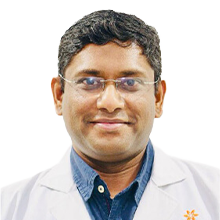
Dr. Dilip M Babu
23 Years Of Experience
Sr. Consultant Nephrologist and Transplant Physician
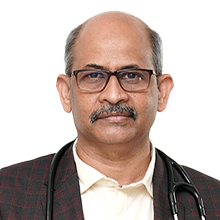
Dr. Rajasekara Chakravarthi Madarasu
29 Years Of Experience
Consultant Nephrologist, Clinical Director & HOD of Nephrology and Transplant Services
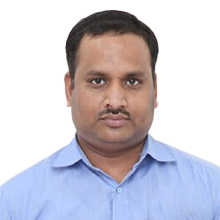
Dr. G. Sudhakar
14 Years Of Experience
Consultant Nephrologist

Dr. Nageswara P Reddy
28 Years Of Experience
Consultant Nephrologist
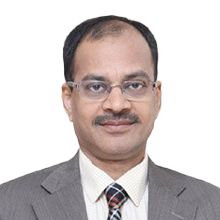
Dr. V. Suresh Babu
22 Years Of Experience
Consultant Nephrologist
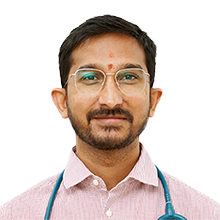
Dr. Penmetsa Vijay Varma
16 Years Of Experience
Consultant Nephrologist
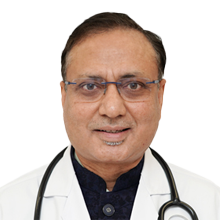
Dr. Tarun Kumar Saha
31 Years Of Experience
Sr. Consultant Nephrologist & Transplant Physician
Precise Nephrological Treatments and Surgeries
Yashoda Hospitals proudly introduces the robotic surgical system that enables treatments for partial and radical robotic nephrectomies, as well as for complex oncological conditions. It allows for nephron-sparing surgical interventions, such as for small kidney tumors, while preserving healthy kidney tissue and safeguarding its vital components.
Such complex cases are swiftly and effectively handled under the superior expertise and guidance of our senior nephrologists, who ensure minimal side effects post-surgery and no urinary and sexual dysfunction after surgery.
Renal Treatment and Surgeries at the Advanced Kidney Care Hospital:
- Acute Intermittent Haemodialysis
- Plasmapheresis/Therapeutic Plasma Exchange (TPA)
- Continuous Ambulatory Peritoneal Dialysis (CAPD)
- Peritoneal Dialysis in Acute Setting
- Immunosuppression Induction Therapy
- Robot-Assisted Laparoscopic Nephrectomy
- Robot-Assisted Adrenalectomy
- Renal Artery Angioplasty and Stenting
- Kidney-Sparing Surgery
- Haemodialysis Catheterization
- Permacath Insertion
- Renal Denervation Therapy (RND)
Preview: Acute intermittent haemodialysis (AIHD) aims to restore severe kidney impairment by rapidly removing toxins from the bloodstream. It is a temporary measure performed under conditions such as acute kidney injury, poisoning, or managing fluid overload.
Surgical Steps
- The surgeon creates an access point in the arm for the dialysis machine to enter by enlarging a blood vessel and connecting the patient’s blood and dialysis machine via a catheter or fistula.
- The machine then filters out the waste products, excess fluids, and toxins with the help of a special fluid called dialysate, which filters the blood and restores electrolyte imbalances. Later, the filtered blood is returned to the patient’s body.
Benefits:
- Lower risk of anticoagulation
- Relatively short treatment duration
- Correction of electrolyte imbalances
- Rapid waste and fluid removal
Preview: Plasmapheresis, or therapeutic plasma exchange, is more of an intervention than a surgical procedure that aims to remove and replace the patient’s blood plasma to treat certain conditions by removing the disease-causing agents, like antibodies that attack the body.
Surgical Steps
- An IV is inserted to carefully remove small amounts of blood, which is passed down through a machine that separates the blood from the blood cells.
- The plasma contaminated with the harmful substances is discarded through its mechanism, and the remaining blood cells are combined with the replacement fluid, such as donor plasma or albumin protein, and returned to the patients.
Benefits:
- Treats autoimmune disorders
- Life-saving intervention
- Improved outcomes
Read more about – Therapeutic Plasma Exchange
Preview: Continuous Ambulatory Peritoneal Dialysis (CAPD) is a continuous home-based dialysis treatment that aims to replace kidney function by using the inner lining of the abdominal cavity (peritoneum) as a filter and removing excess fluid and toxic waste from the blood. Its purpose is to maintain a stable internal environment in kidney failure.
Surgical Steps
- A permanent, soft, flexible plastic catheter is placed into the abdominal cavity just below the navel, followed by the manual filling of the dialysate solution.
- Dialysate remains in the abdominal cavity for several hours, known as the dwell time, where it collects toxic waste and excess fluid. The peritoneum functions as a filtration mechanism.
- However, the contaminated dialysate is drained out of the abdomen, and the new batch is prepared to be inserted, completing a dialysis session, which repeats 3-5 times a day.
Benefits:
- Improved residual kidney function
- Reduced physical stress
- Flexible and independent
- Improved nutritional control
- Cost-effectiveness
Read more about – Continuous Ambulatory Peritoneal Dialysis (CAPD)
Preview: Peritoneal dialysis in an acute setting is designed to temporarily replace the entire kidney function by utilising the patient’s peritoneal membrane as a filter. It removes toxic waste and excess fluid or electrolytes from the blood in acute kidney failure, where the kidneys fail to perform the task above, or when haemodialysis is not feasible.
Surgical Steps
- This minor surgery is performed under the influence of local anaesthesia or mild sedation, where a specialist surgically inserts a catheter to allow the dialysate to be introduced and drained.
- This minimally invasive procedure takes 20 minutes, followed by 4-6 hours of hospital stay, with final recovery taking 5-7 days.
Benefits:
- Less complex and cost-effective
- Haemodynamically stable
- Preserves residual kidney function
- Reduces the need for electricity and water
Preview: Immunosuppression induction therapy is a short-term regimen of high-dose immunosuppressants administered during an organ transplant to prevent acute organ rejection in the initial post-surgical weeks. It mitigates rejection episodes and allows reduced doses of long-term immunosuppressants.
Surgical Steps
- The specific immunosuppression induction therapy type and dose depend on the patient’s health and conditions. It typically involves a short course of immunosuppressants, like antibody therapies or conventional high-dose immunosuppressants.
Benefits:
- Improves long-term graft survival
- Minimises the risk of complications
- Lowers the risk of acute rejection
Preview: It aims to remove the kidney tumour while preserving the healthy surrounding tissues by offering a minimally invasive approach that can be performed radically or partially, depending on the tumour size.
Surgical Steps
- The surgeon administers general anaesthesia and makes several small incisions in the abdomen to insert a laparoscope, robotic arms, and other specialised instruments.
- The robotic system imparts 3D vision and enhanced control of the instruments over the operating area. The surgeon locates and removes the tumours while preserving the surrounding tissues, repairs blood vessels, and stitches the incision.
Benefits:
- Reduced pain
- Faster recovery
- Smaller scars
- Improved cosmesis
- Reduced blood loss
Read more about – Nephrectomy
Preview: It aims to remove an adrenal mass using robotic technology that performs minimally invasive techniques, imparting enhanced precision and dexterity, thus providing a less invasive alternative to traditional open surgeries.
Surgical Steps
- Patients undergo MRI and blood tests to confirm the size and location of the adrenal tumour.
- The surgeon makes a small incision to insert the robotic arms and carefully dissects the adrenal mass while minimising damage to the adjacent organs.
- The surgeon may prescribe medications for pain management.
Benefits:
- Reduced pain
- Less blood loss
- Shorter hospital stays
- Faster recovery
Preview: Renal artery angioplasty and stenting aim to improve the blood circulation by narrowing or widening the blocked renal artery. Its purpose is to control hypertension, protect kidney function, and improve cardiovascular health.
Surgical Steps
- An X-ray-guided catheter insertion is performed with a small balloon attached to the tip of the catheter, which is blown to widen the narrow artery.
- A tiny mesh is kept within the artery to prevent it from narrowing again. The catheter and balloon are removed after stent placement, and the incisions are stitched.
Benefits:
- Reduced blood pressure
- Improved renal function
- Reduced risk of cardiovascular events
- Minimally invasive
Preview: Kidney-sparing surgery, also known as partial nephrectomy, aims to remove the part of the kidney where the tumour is located as well as much of the healthy kidney tissue as possible. It is specifically performed for people with small kidney tumours, bilateral kidney tumours, or moderate to severe chronic kidney disease.
Surgical Steps
- There are two minimally invasive alternatives to open kidney-sparing surgery: laparoscopic partial nephrectomy (LPN) and robotic-assisted partial nephrectomy (RAPN).
- LPN involves removing the tumour through small incisions using specialised tools while preserving as much of the kidney tissue as possible, whereas RAPN uses two robotic arms and a camera for precision, dexterity, and 3D imaging.
Benefits:
- Preservation of renal function
- Improved long-term health
- Reduced complication
- Faster recovery
Preview: Haemodialysis catheterization is a procedure performed during haemodialysis treatments to access the bloodstream temporarily when other vascular access methods like grafts are not readily available or fail to be used. Its purpose is to perform immediate dialysis for patients with kidney failure in an emergency.
Surgical Steps
- The surgeon performs the procedure after administering local anaesthesia and makes a small incision to insert the dialysis catheter, typically accessing the internal jugular vein or the femoral vein.
- The patient is monitored to maintain the blood flow and prevent complications.
Benefits:
- Immediate access
- Acute kidney failure management
- Infection prevention
Preview: Perma-cath insertion, also known as a central venous catheter, is a minor procedure performed during tunneled haemodialysis, aiming to create safe, reliable, and permanent access during haemodialysis in patients with kidney diseases when an AV fistula or other options are unsuitable.
Surgical Steps
- It is a minor surgical procedure performed under local anaesthesia, followed by an attachment of the pulse oximeter to the finger to monitor the blood oxygen levels.
- A guide wire is inserted into the major vein through ultrasound guidance into the internal jugular vein, and the dialysis wire is then inserted through the guide wire.
- Immediately after recovery, the patient stays for 45 minutes for vital monitoring; initial recovery takes up to 10 days, and final recovery requires a few weeks.
Benefits:
- Reduced risk of infections
- Best option for immediate dialysis
- Alternative for graft/fistula failure
- Minimises the use of painful needles
- Long-term confrontation during multiple dialysis
Read more about – Permacath Insertion
Preview: Renal denervation therapy (RND) aims to reduce blood pressure in patients with resistant hypertension by specifically damaging the renal nerves, which earlier were not under control despite the use of multiple medications. It potentially reduces the number of prescriptions required to manage hypertension.
Surgical Steps
- The surgeon performs under the influence of local anaesthesia or sedation, followed by the insertion of the catheters into the renal blood vessels.
- Radiofrequency energy is applied to damage the nerve endings responsible for hypertension.
- The team may give patients a post-operative guide, including medical prescriptions and activity restrictions.
Benefits:
- Reduced blood pressure
- Potential for medication reduction
- Improved cardiovascular health
- Reduces the burden of arrhythmias
- Improved obstructive sleep apnoea
Read more about – Renal Denervation Therapy (RND)
Advanced Renal Conditions and Comprehensive Measures
Early and accurate diagnosis using state-of-the-art technology is vital for managing renal diseases. At the Nephrology Institute of Yashoda Hospitals, we offer expert care for mild to severe kidney conditions led by highly experienced nephrologists and supported by cutting-edge critical care facilities.
Additionally, our nephrologists focus on identifying the injury before it culminates in kidney failure. Either way, patients are offered renal replacement therapy as a crucial measure to stop the progression of any kidney failures, chronic kidney diseases, or injuries.
List of Advanced Renal Diseases and Conditions:
- Renal Parenchymal Disease
- Severe CKD
- Goodpasture Syndrome
- Acute Kidney Injury (AKI)
- Glomerulonephritis
- Diabetic Nephropathy
- Nephrotic Syndrome
- Alport Syndrome
- Fabry Disease
- Renal Artery Stenosis
- Electrolyte Imbalances
- Drug-Induced Kidney Injury
- Renal Cancers
Symptoms of Renal Parenchymal Disease:
- Changes in urine frequency and output
- Blood in urine
- Anaemia
- Oedema
- Fatigue and weakness
- High blood pressure
Causes for Renal Parenchymal Disease:
- Diabetes
- High blood pressure
- Autoimmune disease (lupus nephritis)
- Kidney infection
- Kidney stones
- Medications like NSAIDs
Symptoms of Severe CKD:
- Back & chest pain
- Muscle cramps
- Anaemia
- Itchy skin
- Confusion & trouble concentrating
Causes for Severe CKD:
- High blood pressure
- Glomerulonephritis
- Polycystic kidney disease
- Diabetes
- Family history, medication, or infections
Symptoms of Goodpasture Syndrome:
- Weight loss,
- Fever and general malaise
- Blood and protein leakage in the urine
- Burning sensation while urinating
- Swelling in the legs and hands
- Oedema in the kidneys
Causes for Goodpasture Syndrome:
- Autoimmune reaction
- Anti-GBM antibodies
- Genetic factors
- Exposure to certain chemicals
Symptoms of Acute Kidney Injury (AKI):
- Reduced urine output
- Pain in the belly or side
- Pressure in the chest
- Severe seizures or coma
- Irregular heartbeat
- Confusion
Causes for Acute Kidney Injury (AKI):
- Conditions affecting blood flow
- Urinary tract blockages
- Kidney damage
- Underlying conditions like heart disease.
- Severe allergic reaction, like anaphylaxis.
Read more about – Acute Kidney Injury (AKI)
Symptoms of Glomerulonephritis:
- Swelling in the face, ankles, legs, and abdomen
- Cola-coloured urine or foamy urine
- Decreased urination frequency
- Fatigue
- Abdominal pain
- Loss of appetite
Causes for Glomerulonephritis:
- Autoimmune diseases like lupus erythematosus or vasculitis
- Bacterial, viral, or parasitic infections
- Heart diseases and certain cancers
- Diabetes
- Glomerulonephritis
Symptoms of Diabetic Nephropathy:
- Shortness of breath
- Itchy skin
- Confusion
- Increased urination
- Foamy urine
- Fatigue and shortness of breath
Causes for Diabetic Nephropathy:
- Poorly controlled diabetes
- Hypertension
- Type 1 diabetes causes the early onset of the disease.
- Long family history of kidney diseases
Symptoms of Nephrotic Syndrome:
- Low albumin levels in the blood
- High blood cholesterol and triglycerides
- Oedema
- Hypertension
- Loss of appetite
Causes for Nephrotic Syndrome:
- Glomeruli damage
- Hepatitis B or HIV
- Drug-induced, like NSAIDs
- Hereditary or congenital conditions
Symptoms of Alport Syndrome:
- Blood in the urine
- Protein in the urine
- Hypertension & oedema
- Progressive hearing loss
- Myopia
- Misshapen eye lens
Causes for Alport Syndrome:
- Sexually inherited
- Type IV collagen
- Connective tissue mutation
Symptoms of Fabry Disease:
- Stroke
- Angiokeratomas (skin rash)
- Reduced ability to sweat
- Gastrointestinal problems
- Cloudiness of the cornea
- Ringing in the ears
- Enlargement of the heart muscles
- Progressive kidney failure
Causes of Fabry Disease:
- Genetic mutations
- Inherited disorders
- Buildup of GL-3
Symptoms of Renal Artery Stenosis:
- Hypertension
- Oedema
- Changes in urination
- Kidney function problems
- Whooshing sound
Causes for Renal Artery Stenosis:
- Atherosclerosis
- Fibromuscular dysplasia
- Rare congenital issues
- Renal artery anomalies
Symptoms of Electrolyte Imbalances:
- Seizures
- Irregular heartbeat
- Changes in mental state
- Numbness or tingling sensation
- Increased or decreased urine output
- Muscle cramps or weakness
Causes for Electrolyte Imbalances:
- Poor dietary intake
- Excessive fluid loss
- Dehydration or excessively drinking water
- Malnutrition
- Severe vomiting or diarrhoea
- Gastrointestinal malabsorption
Symptoms of Drug-Induced Kidney Injury:
- Decreased urine output
- Oedema
- Fatigue and loss of appetite
- Confusion
- Shortness of breath
Causes for Drug-Induced Kidney Injury:
- Antibiotic-induced, like aminoglycosides
- Blood pressure medications
- Pain relievers
- Recreational drugs
- Cancer and HIV medications
Symptoms of Renal Cancers:
- Hypercalcaemia
- Pain in the side or back
- Unexplained weight loss
- Fever or night sweats
- Oedema of the legs or ankles
- Anaemia
- Bone pain
Causes of Renal Cancers:
- Certain inherited diseases, such as Von Hippel-Lindau disease
- Exposure to certain chemicals, such as asbestos or cadmium
- Chronic kidney disease
- Family history
Best Kidney Hospital in India with Advanced Diagnostics & Facilities
Yashoda Hospitals, recognised as one of the best kidney hospitals in Hyderabad, distinguishes itself through its advanced robotic facilities and techniques for diagnosing and treating multiple kidney conditions such as kidney failure, injury and electrolyte imbalances, including complex kidney problems like renal cancers, utilising the latest technology and advanced clinical expertise.
The hospital provides comprehensive kidney function tests, urinalysis, and biopsies to facilitate early detection and prevention of nephrological conditions. Our team of interventional nephrologists specialises in diagnosing, treating, and preventing kidney problems, delivering holistic care to every patient.
List of Diagnostics and Facilities Present at the Top Kidney Care Hospital:
- Kidney Function Markers
- Electrolyte Panel
- Inflammatory Markers
- Immunological/Autoimmune Markers
- Uric Acid Test
- Urinalysis
- Urine Culture and Sensitivity
- Renal Ultrasound (USG KUB)
- MAG3 Scan
- DMSA Scan
- Renal Scintigraphy
- Renal Angiography
- Percutaneous Kidney Biopsy
- CT Scans
- MRI Scans
Why is it performed?
Kidney function markers are crucial to determining the glomerular filtration rate (GFR), which measures how well the kidneys filter out waste products from the blood, such as creatinine, urea, and albumin.
Advantages:
- Accurate kidney function assessment
- Monitor treatment response
- Risk stratification
- Improved patient outcome
Read more about – Renal Function Test
Why is it performed?
The electrolyte panel is a blood test conducted to evaluate kidney function by monitoring the concentrations of electrolytes, including sodium, potassium, calcium, and magnesium. This test also facilitates diagnosis and monitoring of conditions, such as chronic kidney disease and acute kidney injury, while managing fluid and electrolyte imbalances.
Advantages:
- Assess acid-base balance
- Early detection
- Monitors disease progression
- Reduced risk of complications
- Improving patient outcomes
Read more about – Electrolytes Test
Why is it performed?
To evaluate the extent of inflammation associated with chronic kidney disease, two notable inflammatory markers must be considered, namely C-reactive protein (CRP) and Interleukin-6 (IL-6). These markers assess the progression of chronic kidney disease and the concomitant increased risk of cardiovascular disease, respectively.
Advantages:
- Identify cardiovascular risk
- Predicting kidney disease progression
- Elucidates the mechanism of kidney function
- Identifying the risk of complications
Read more about – CRP Test
Why is it performed?
Autoimmune markers help identify autoantibodies, antibodies that target the kidneys, like anti-glomerular basement membrane antibodies found in Goodpasture syndrome, that cause kidney damage. It also identifies the underlying mechanism of autoimmune kidney disease.
Advantages:
- Better distinguish different conditions
- Early detection
- Improved prognosis
Why is it performed?
The uric acid test measures the uric acid levels in blood or urine. Its primary aim is to diagnose and monitor gout, kidney stones, and other metabolic disorders to assess kidney function. It is performed against conditions like hyperuricemia (high uric acid levels), adding to nephrolithiasis (kidney stones) and worsening chronic kidney disease (CKD).
Advantages:
- Guiding the management of kidney stones
- Monitors chemotherapy-related uric acid evaluation
- Early detection of renal problems
Read more about – Uric Acid Test
Why is it performed?
Urinalysis, commonly referred to as a urine routine test, is a general body test to detect the signs of infections, kidney infections, or diabetes from a urine sample. It checks for physical, chemical, and microscopic properties and detects conditions like urinary tract infections, kidney diseases, diabetes, and liver problems.
Advantages:
- Early detection of health problems
- Identify specific abnormalities, such as pus cells or cholesterol crystals.
- Detects bladder cancer
- Non-invasive and quick
Read more about – Urine Routine Test
Why is it performed?
This test aims to identify and determine the sensitivity of bacteria or microorganisms in the urine and is particularly performed to diagnose urinary tract infections. It identifies the bacteria or fungi causing the infections and determines which antibiotics are useful against the condition.
Read more about – Urine Culture Test
Why is it performed?
It is a noninvasive imaging technique that detects kidney stones, cysts, and tumours and evaluates initial post-surgical recovery. It thoroughly assesses kidney, ureter, and bladder functions.
Advantages:
- Safe
- Cost-effective
- Real-time imaging
- Better initiatives for abnormal kidney functions
Why is it performed?
An MAG3 (mercaptoacetyltriglycine) scan is performed to evaluate kidney function and renal blood flow, detect obstructions (hydronephrosis), and monitor conditions such as renal artery stenosis, pyelonephritis, or hydronephrosis.
Advantages:
- Determine the individual functionality of each kidney.
- Subtly differentiates renal problems
- Quantitative analysis
- Non-invasive
Why is it performed?
It is a nuclear medicine imaging test used to evaluate kidney size and shape, diagnose renal scarring, assess kidney function, and monitor kidney infections or diseases.
Advantages:
- Non-invasive
- Thorough assessment of the kidneys
- Early detection of the problems
Read more about – DMSA Scan
Why is it performed?
Renal scintigraphy, a renogram or DTPA scan, is a nuclear medicine imaging technique used to evaluate glomerular filtration rate and renal blood flow and detect scarring, tumours, and obstructions. It also assesses the effects of injuries or diseases like hypertension or diabetes and monitors post-surgical kidney transplants.
Advantages:
- Non-invasive
- Provides structural and functional information
- Early detection of abnormalities
- Low radiation exposure
- Quantitative analysis
Why is it performed?
It is an imaging technique that aims to visualise renal blood vessels and their branches, assess blood flow, and identify any blockages, narrowing, or abnormalities, such as stenosis, an aneurysm, blockages, thromboses, tumours, or fistulas.
Benefits:
- Aids in developing a tailored treatment plan
- Precise diagnosis
- Guiding the interventional process
- Reduced risk of complications
- Improved patient outcomes
Why is it performed?
Percutaneous kidney biopsy aims to diagnose a kidney disease by collecting a tissue sample for microscopic analysis. Its purpose is to provide information about the severity and type of kidney damage, evaluate the treatment’s effectiveness, and monitor the post-surgical conditions.
Advantages:
- Minimally invasive
- Accurate and safe
- Cost-effective
Why is it performed?
A CT scan is a non-invasive radiology imaging method that combines an X-ray with a set of computers to generate more detailed images of the patient’s internal organs than a regular X-ray. Its unique capabilities allow simultaneous imaging of bones, internal organs, and blood vessels, which is important in emergency cases to identify internal injuries.
Advantages:
- Rapid and convenient
- Monitors disease progression
- Non-invasive
- Cost-effective
Read more about – CT Scan
Why is it performed?
- Magnetic Resonance Imaging (MRI) scans employ radio waves and magnetic fields to acquire high-definition images of soft tissues, such as muscles abundant in water, which are typically not visible on standard X-ray images, which primarily depict bones.
- Most importantly, MRI is utilised to evaluate renal function through methodologies, including Dynamic Contrast Enhancement (DCE) and Blood-Oxygen-Level-Dependent (BOLD) imaging techniques.
Advantages:
- Superior soft tissue contrast
- No ionising radiation
- Evaluates renal artery stenosis
- Renal transplant assessment
- Reduced risk of contrast nephropathy
Read more about – MRI Scans
Insurance & Financial Information
Medical insurance provides financial protection and peace of mind by covering healthcare costs. This allows individuals to prioritize recovery over expenses. While most insurance covers treatment costs, including tests and medications, we recommend that you confirm specific coverage details with your provider.
Read more about – Insurance & Financial Information
International patient services
Yashoda Group of Hospitals in Hyderabad has provided three decades of exceptional healthcare, blending advanced technology with experienced staff to meet international standards. Their comprehensive international patient services manage everything from visas and travel to insurance, ensuring a seamless and supportive healthcare experience.
Read more about – International patient services
Doctor Talk
Health Talk
Patient Testimonials For Arthroscopy
Health Blogs for Nephrology
FAQ’s
How much blood do the kidneys filter daily?
Ideally, a human kidney filters a significant amount of blood daily (180 litres). Consequently, the kidneys reabsorb most of the water and nutrients into the bloodstream; as a result, the actual amount of urine produced is typically 1-2 litres.
What happens if the kidneys don’t remove enough waste?
It induces the accumulation of waste products, including creatinine, urea, and excess electrolytes, in the bloodstream, resulting in fluid imbalance and swelling, particularly in the legs and ankles. This further results in an excessive accumulation of fluid and toxins in the body, which is the cause of uremia and eventually kidney failure.
What is the difference between a urologist and a nephrologist?
Nephrologists specialise in the diagnosis and treatment of kidney diseases. Whereas urologists specialise in the diagnosis and treatment of diseases and conditions of the urinary tract and male reproductive system.
Nephrologists treat which diseases?
A nephrologist treats a variety of diseases and conditions related to the kidneys and the body’s fluid and electrolyte balance. Nephrologists work to diagnose, treat, and manage these conditions and provide comprehensive care for patients with complex kidney-related issues.
What are the common tests conducted in nephrology?
Nephrology and kidney-related assessments encompass blood tests such as serum creatinine, albumin, and electrolyte levels, along with urine tests like urine analysis and urine culture. Diagnostic imaging, including ultrasound, MRI, CT scans, and renal scans, is employed to identify structural kidney-related conditions.
What is a kidney function test?
Kidney function tests, including serum creatinine, blood urea, urine analysis, and urine culture, are conducted to measure kidney function and monitor the progression of kidney diseases.
Can kidney stones become a life-threatening condition?
The severity of kidney stones depends on several factors, including the size, location, and type of stone, as well as the individual’s overall health. Pain caused by kidney stones can be excruciating, often accompanied by other urinary complications such as kidney infections and potential permanent kidney damage.
How to prevent kidney failure?
The prevention of kidney disease is achieved through the implementation of a healthy lifestyle, the maintenance of a balanced diet, regular monitoring and control of blood pressure, and the avoidance of smoking and alcohol consumption.
Why choose Yashoda for kidney care?
Yashoda Hospitals are the best go-to options for kidney care due to their internationally accredited nephrologists and transplant specialists, expertise in performing high-risk, successful kidney transplants, and support from advanced surgical systems and comprehensive dialysis facilities.
What conditions does Yashoda’s nephrology department treat?
The nephrology institute of Yashoda Hospitals treats a variety of kidney-related conditions, including kidney stones, cysts, acute kidney injury, chronic kidney disease, diabetic nephropathy, glomerulonephritis, and end-stage renal disease (ESRD).
What kind of advanced treatments and accurate diagnoses for kidney diseases are available at Yashoda Hospitals?
Yashoda Hospitals offers a wide range of advanced treatments and accurate diagnoses, including state-of-the-art dialysis units that perform hemodialysis, peritoneal dialysis, and continuous renal replacement therapy (CRRT). They also offer robotic advancements for the treatment of kidney stones, such as extracorporeal shockwave lithotripsy (ESWL) and percutaneous nephrolithotomy (PCNL).
Can children receive nephrology treatment at Yashoda Hospital?
Yes! Yashoda Hospital has a dedicated paediatric nephrology unit providing various nephrology treatments for infants and early teenagers. The team of paediatric nephrologists offers a multidisciplinary approach to attend to children with acute and chronic kidney diseases.
Are 24/7 haemodialysis and hemodiafiltration services available for nephrology patients at Yashoda Hospital?
Yes! Yashoda Hospitals provides 24/7 haemodialysis and hemodiafiltration services with experts in critical care available round the clock, who offer tailored prescriptions of dialysis plans and utilise the latest technologies with enhanced safety features.
Why choose Yashoda Hospitals for kidney stone treatment?
Yashoda Hospitals, with the most experienced surgeons and world-class infrastructure, perform advanced procedures, including laser shock wave lithotripsy, laser lithotripsy, mini PCNL, and RIRS. These minimally invasive techniques typically involve small to no surgical incisions, ensuring effective and efficient removal of kidney stones with reduced recovery times.
What is the cost of dialysis per day?
The cost of dialysis per day at Yashoda Hospitals is influenced by several factors, such as the type of dialysis performed, the type of insurance coverage, and the type of facility. It typically ranges from 1,500/- to 4,500/-, offering 10 to 14 sessions every month.
How can I book an appointment with a nephrologist at Yashoda Hospital?
To book an appointment with a nephrologist at Yashoda Hospitals, you can either call their 24/7 appointment helpline number and provide all the details and preferred date and time. Alternatively, you can also book an online consultation through their website or visit the preferred doctor’s profile page.





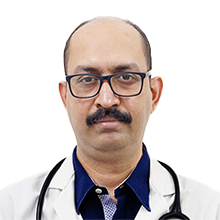
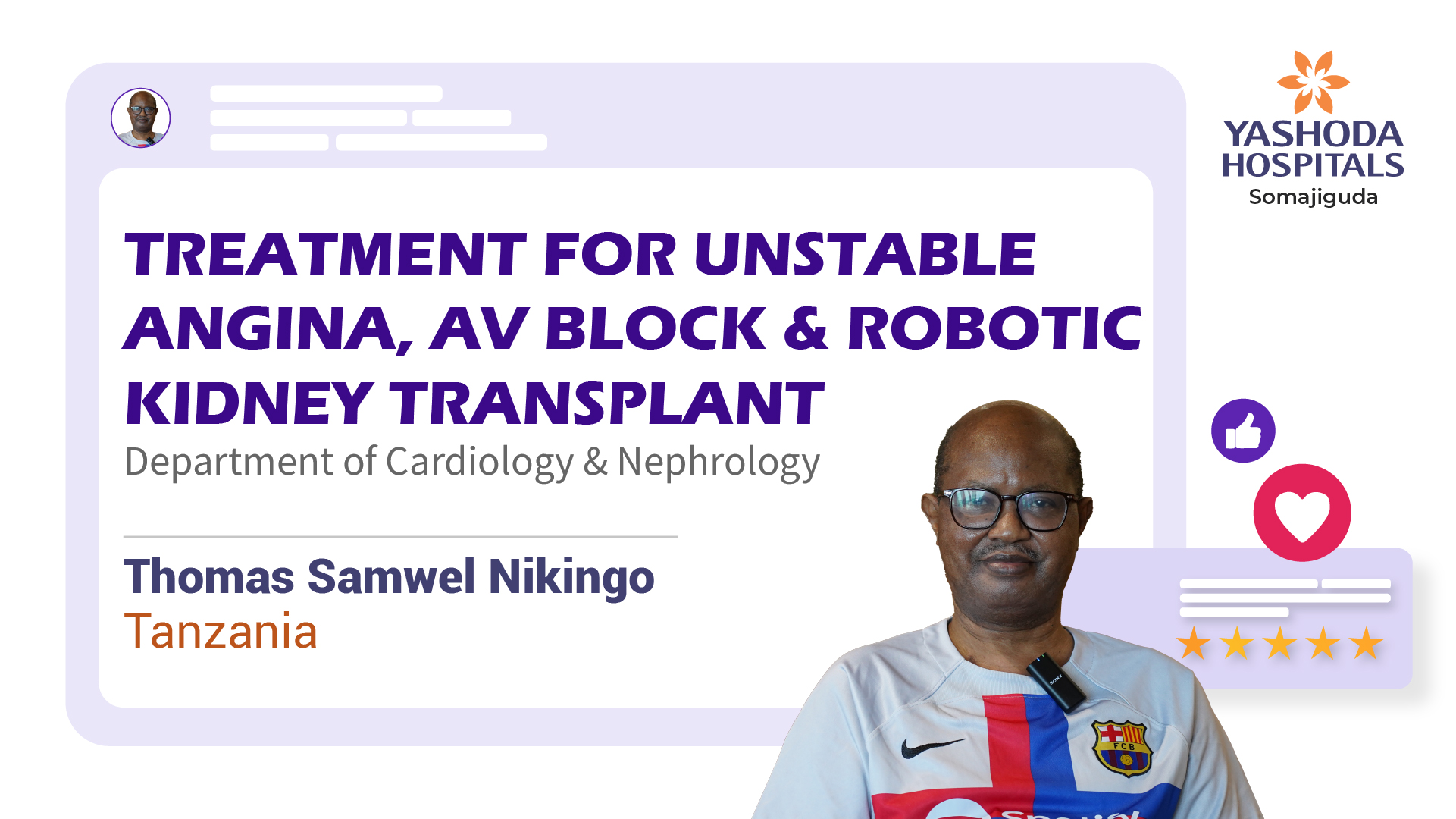
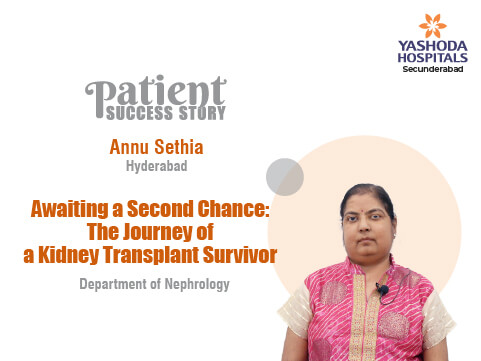
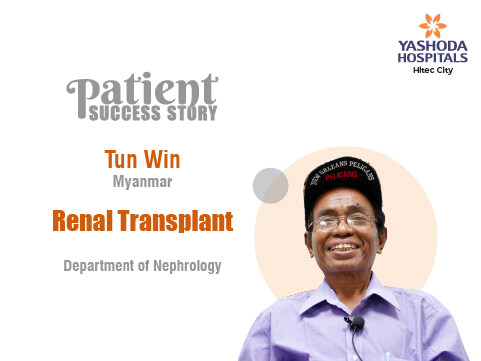
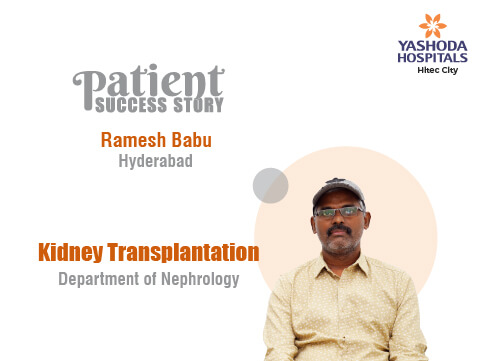
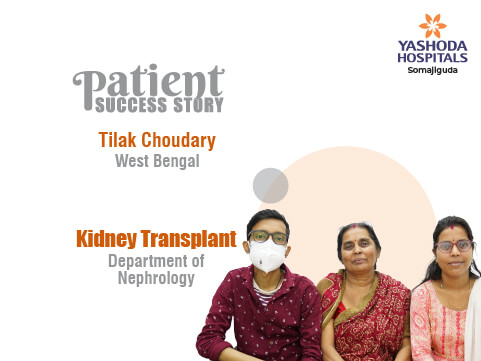
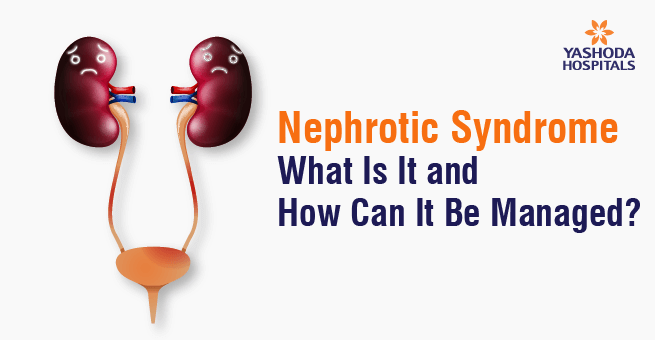
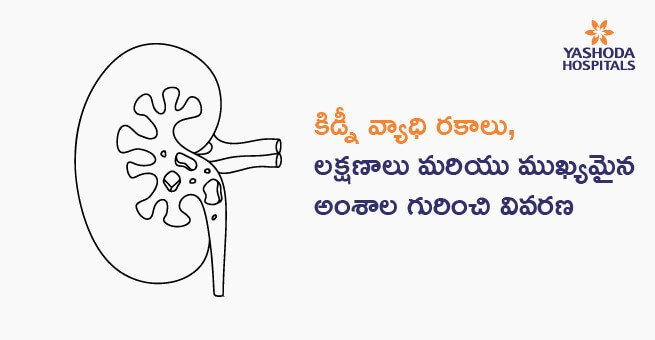

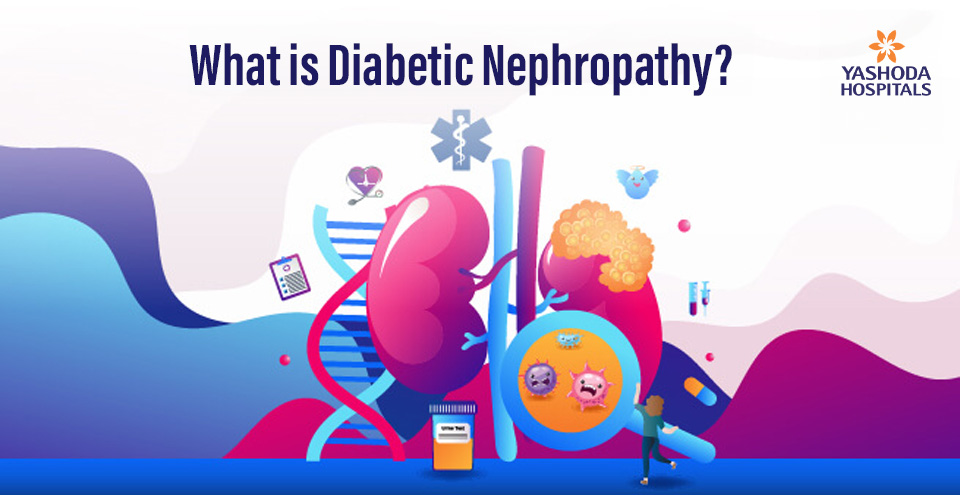
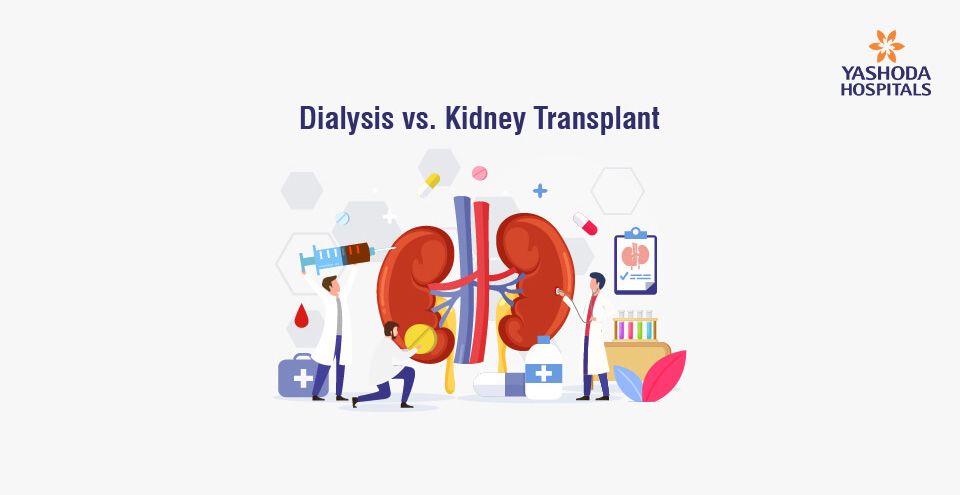
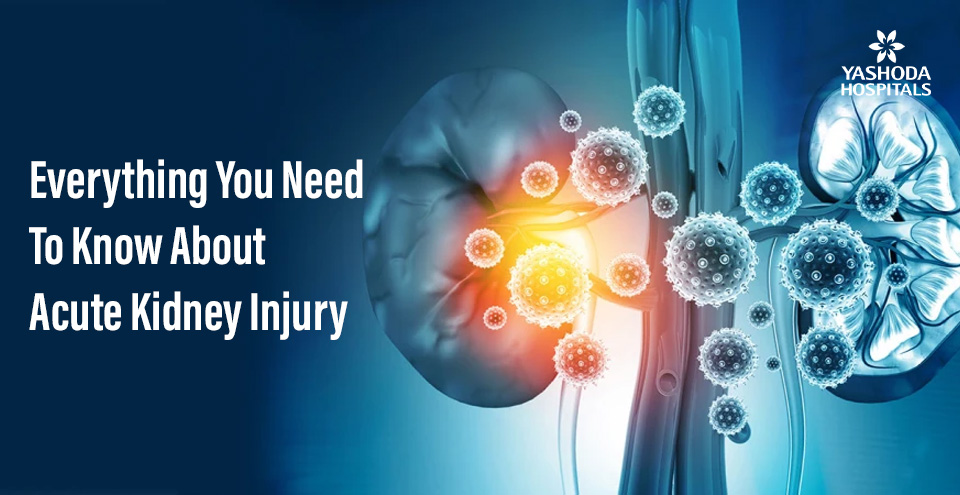
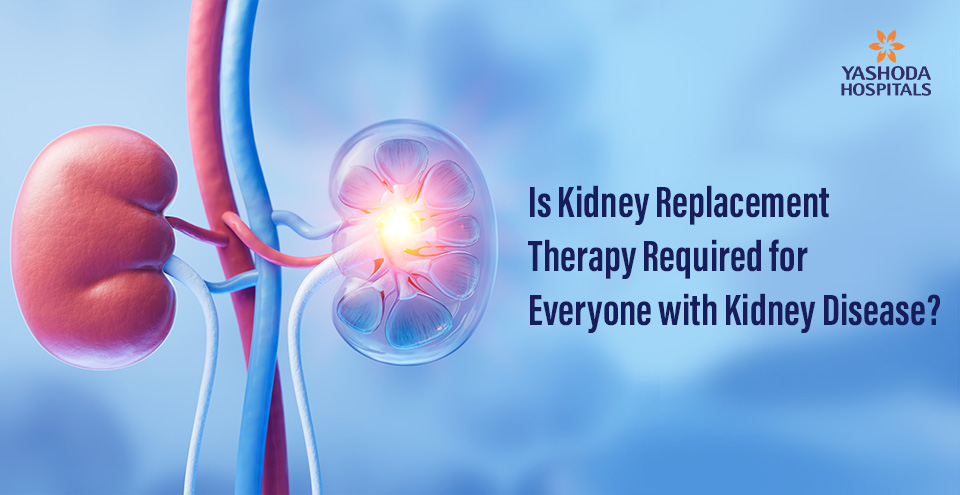

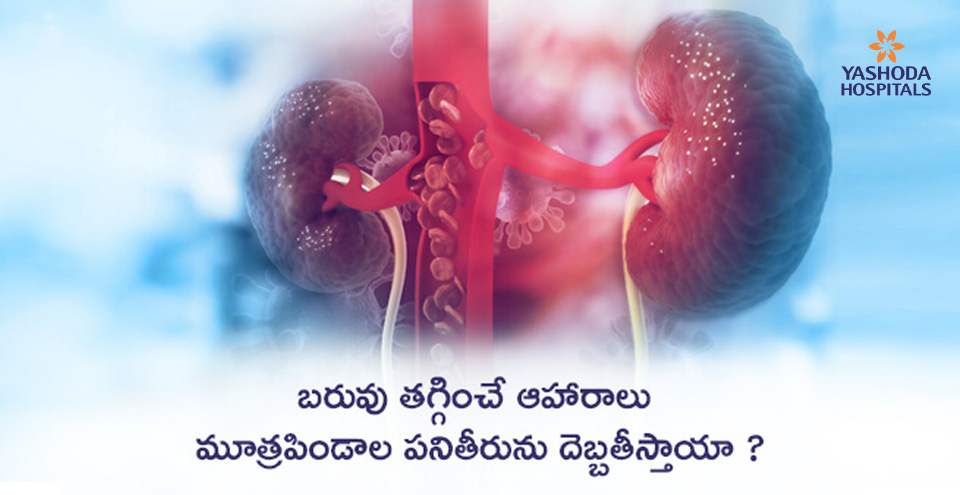
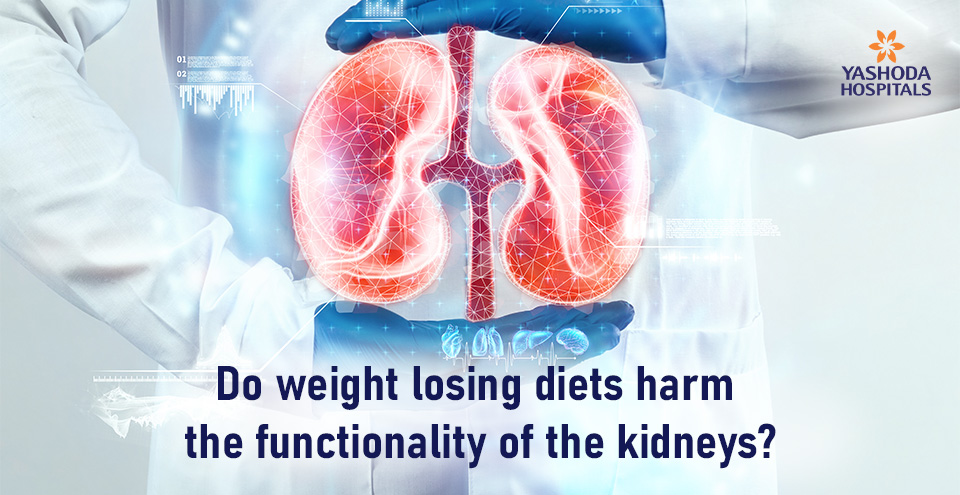
 Appointment
Appointment WhatsApp
WhatsApp Call
Call More
More